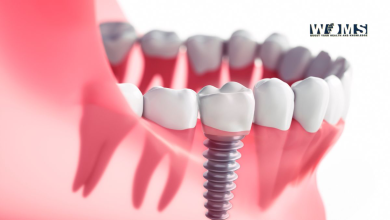Why porcelain veneers are preferred over resin veneers

Veneers are made-to-order fittings to cover a tooth that has been chipped, broken or stained tooth. Minor injury to the mouth and teeth is becoming increasingly commonplace in today’s active lifestyle, while stained teeth can happen over time through consumption of food like curry, soya sauce-based dishes, fruit juices, coffee and tea. Veneers can also be used to address crooked teeth or gaps between teeth, which not only may hamper your perfect smile but also pose a challenge to clean and maintain good oral hygiene.
Benefits of veneers
In the yesteryears, veneers were perceived as a luxurious elective dental treatment. However, these days, veneers are as easily and commonly available as a scaling treatment at any dental clinic. Veneers do more than just perfect your smile and regain your self-esteem. Veneers are vital to ensure that the damaged tooth does not deteriorate further or cracks, and prevent its root from becoming exposed. Chipped teeth are also often sharp, so veneers are there to protect your lips and the insides of your mouth from being grazed and cut.
Why porcelain veneers are preferred
There are two types of veneers – porcelain veneers and resin veneers. The process of getting them fitted are similar. As the first step, the dentist will make temporary veneers from liquid composite that function which serves as a blueprint for your future teeth. The temporary veneers are made in a shade as close to your natural teeth as possible, with your skin tone also a factor that the dentist will consider when he paints them.
If you are happy with how the veneers look, the dentist will ask you to take more moulds, X-rays and pictures after you decide to proceed with your veneer plan. The dentist will then take a few days to prepare ‘trial veneers’, which you will be fitted with for 7-10 days. Take this time to evaluate your comfort in terms of the look and feel. If you are all set to go with your ‘trial veneers’, the dentist will take a final set of moulds and send them to a ceramist to duplicate your permanent set of veneers. Once these are complete, the veneers will be fitted to your teeth once again to ensure a precise fit.
Porcelain veneers are more preferred by dentists and patients alike for the material’s hardiness and shade that closely resembles the natural teeth. Porcelain veneers, which are sometimes also referred to as ceramic veneers, are attached to the tops and sides of the teeth. Porcelain veneers last longer and adhere better to the capped tooth because prior to the installation, the dentist will remove some tooth enamel to give the veneer a better grip to the tooth. This strong adherence and the superiority of porcelain that does not chip, fracture or stain make porcelain veneers a favourite among those who want a long-term solution that lasts an estimated 20 years. Expect to pay more for porcelain veneers and to visit the dentist 2-3 times to finally have them installed.
On the other hand, resin veneers cost lesser than porcelain ones but with a higher risk of chipping and staining over time. Resin veneers typically last for 5 years before chips or cracks starts to appear. Nevertheless, replacement is easier as resin veneers do not require any removal of enamel. The installation is also quicker; it is possible to walk out with a nice set of teeth in just one visit to the dentist.
Factors to discuss when getting porcelain veneers
In the consultation with your dentist, he should be able to address these points with you:
Suitability of porcelain veneers
Unfortunately, not everyone is eligible for veneers. People who have weak, decayed or missing teeth may be proposed other dental solutions, as well as those who have recurring or active gum disease. Those who have a tendency of clenching or grinding their teeth in their sleep may be turned down too. The dentist will examine your teeth to see whether you are a good candidate for dental veneers.
Porcelain veneers are long-term fixtures
Once you’ve had veneers, you will always need to have them. This is due to the likelihood that your natural tooth had to be shaved to accommodate the porcelain veneer. Veneers are very securely affirmed and therefore not easily removed should you have a change of mind. If the veneers are due to be replaced, new ones should be fitted immediately to reduce the exposure of the tooth to sensitivity and risk of breakage.
Describe your ‘perfect’ teeth
It is vital to communicate any expectations upfront, as your veneers may not turn out to be the expected sparkly white like celebrities’ teeth. Every set of teeth is different, and the dentist has to create veneers that matches the shade of your natural teeth. The veneer will also mirror the texture of your natural teeth in terms of translucency and tiny bumps and streaks, if any. The ‘perfect’ look would be easier to achieve if your other visible teeth have also been veneered, or the dentist will advise necessary whitening for your natural teeth to ensure that your overall smile is improved as discreetly as possible.
Future facial reconstructuring plans
Tell your dentist if you want to get any further aesthetic treatments for your face, such as fillers, lip injections, muscle relaxants or cosmetic surgery. Any future modifications of your facial features will need to be considered when the dentist constructs your veneers to ensure that they will still be a suitable fit for your new face shape and structure.
Maintaining the veneers
Although capping a tooth with veneers does protect it from further structural damage, cavities will occur for as long as brushing and flossing are not done properly. Veneers can also stain just like natural teeth, especially if you had opted for resin-based ones. Therefore, it is important that you maintain the same level of oral care with your veneers, as well as to stay away from bad habits such as biting on hard food or objects and opening things with your teeth that can potentially damage the veneers.
If you’re considering a dental vacation, do schedule an appointment with us today!
As with any other medical procedure, the first step to having veneers fitted involves a consultation with a dental specialist. He would advise you on your suitability and the best veneers option for you.




